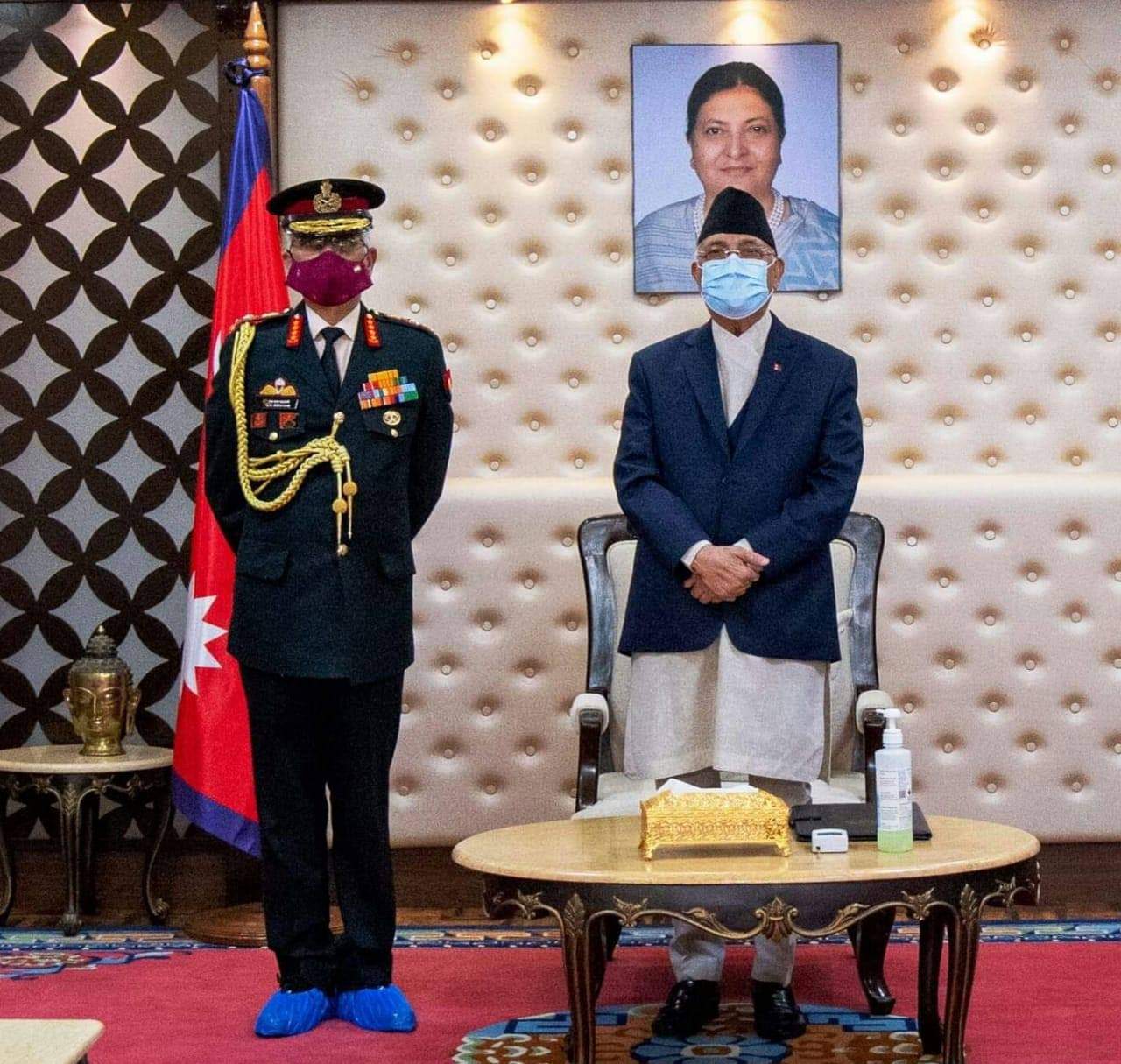
| Title: | Resetting the Relationship: India’s Recent Engagements with Nepal |
| Author/s: | Wini Fred Gurung, Amit Ranjan |
| Abstract: | India and Nepal are embroiled in a cartographic row since November 2019, which has severely affected their relationship. However, in October 2020, Indian officials made a series of visits to Nepal to de-escalate bilateral tensions. This paper examines the significance of these visits on India-Nepal ties and China’s response to this improving bilateral relationship. |
| Date: | 28 December 2020 |
| Read More |

| Title: | The DBS-Lakshmi Vilas Bank Merger and Far-Reaching Bank Recommendations in India |
| Author/s: | Vinod Rai |
| Abstract: | The Reserve Bank of India (RBI) has permitted the ailing Lakshmi Vilas Bank (LVB) to be merged with DBS India. This has come as a welcome relief to LVB and provided it much needed capital infusion. The merger has also resulted in DBS acquiring a vast network of bank branches. The merger is a win-win situation for both. Separately, an internal working group of the RBI has put forward some very far-reaching recommendations for the banking landscape in India. These have generated intense interest and debate. This paper examines the strengths and weaknesses of these recommendations |
| Date: | 2 December 2020 |
| Read More |

| Title: | Ertuğrul: A Turkish delight for Pakistan |
| Author/s: | Nithya Subramanian |
| Abstract: | The Turkish drama series, Diriliş: Ertuğrul, has taken the Muslim world by storm. Ever since Turkey’s President Recep Tayyip Erdoğan came to power in 2002, there has been a conscious effort to not just go back to Islamic roots, but also rehabilitate the Ottoman Empire. The show has been a great success in Pakistan too, fortifying its relations with Turkey and promoting Islamic values as envisaged in Prime Minister Imran Khan’s “Medina” dream. |
| Date: | 20 November 2020 |
| Read More |
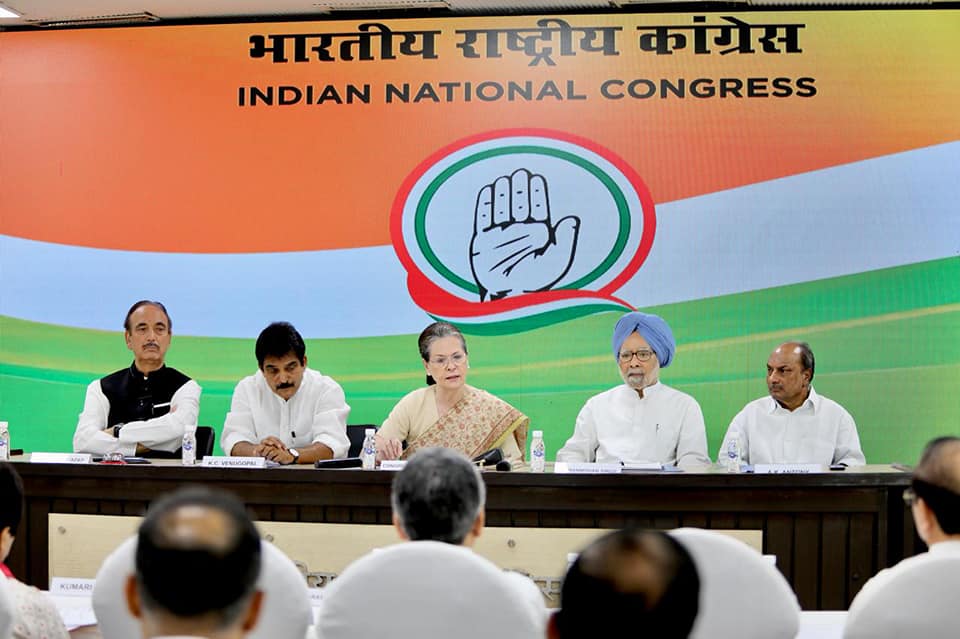
| Title: | Decline of the Congress: The Impact of Defections and Breakaway Factions |
| Author/s: | Ronojoy Sen, Srishti Gupta |
| Abstract: | The Congress has been consistently losing leaders and members to the Bharatiya Janata Party over the past six years. This paper focuses on the issue of defections and traces the electoral fate of breakaway parties and defectors from the Congress in the post-‐1977 period in three states. The breakaway parties have either decimated the Congress or significantly reduced its strength in those states. There are no quick solutions to revive the Congress and stem defections, except for arduously rebuilding or reinventing the party. |
| Date: | 11 November 2020 |
| Read More |
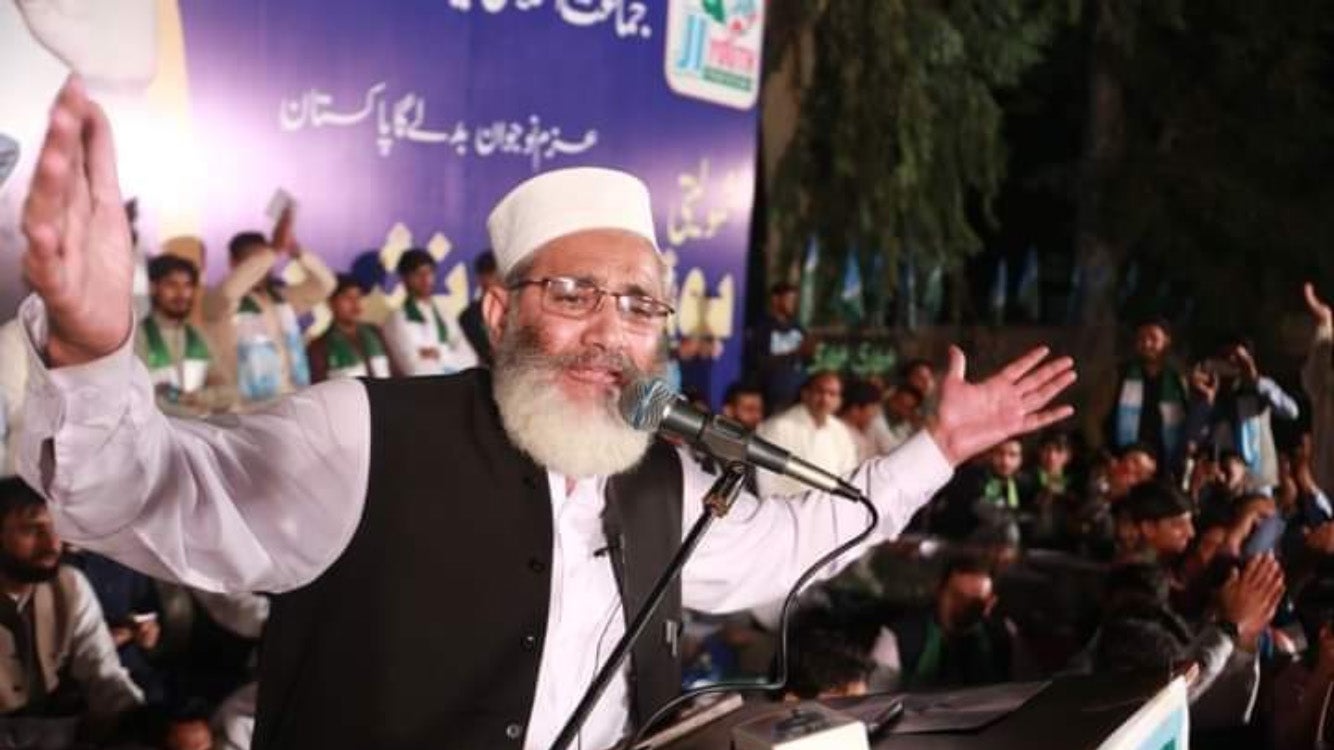
| Title: | Presidential Pardon and the Limits Prescribed by God: A Bill to Amend Article 45 in Pakistan |
| Author/s: | Imran Ahmed |
| Abstract: | Article 45 of the Constitution of the Islamic Republic of Pakistan gives the President the power to grant pardon, reprieve and respite, and to remit, suspend or commute any sentence passed by any court, tribunal or other authority. But whether this power conforms to the norms and principles of Islamic law and can indeed be exercised to commute punishments mandated by the sharia has been a subject of ongoing debate and contention. The critical point of division relates to Hudood and Qisas cases. A recent constitutional Bill introduced to amend Article 45 spotlights the tensions between divine and popular sovereignty in both the Constitution and the legal system of Pakistan. |
| Date: | 9 November 2020 |
| Read More |
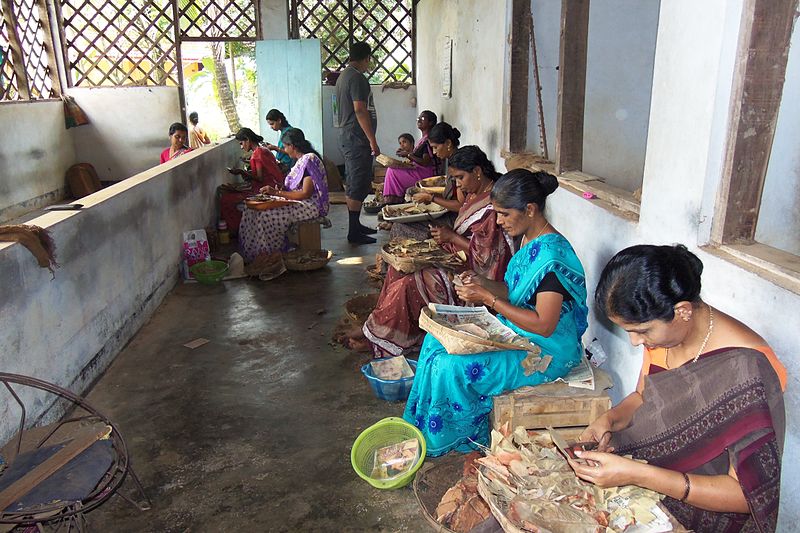
| Title: | Recent Labour Reforms in India: How will they Facilitate Investments? |
| Author/s: | Partha Pratim Mitra |
| Abstract: | India has replaced 29 existing labour laws with four codes. The changes in labour laws should facilitate ease of doing business in the country and make them contemporary in keeping with changes in the labour markets. Flexibility of hiring workers will also increase while ensuring that all sections of the workforce, including the unorganised workers, gig workers and the platform workers, receive social security. The arguments for implementing labour reforms are to enable companies to adjust their labour requirements in line with changes in market demand, ensure better compliance of labour laws through online modes and shift of the labour inspection regime from a negative regulatory regime based on ‘dos’ and ‘don’ts’ to a more positive inspector and facilitator approach. The amalgamation of the laws brought about through codification will also remove the multiplicity of definitions and authorities without compromising the basic concepts of welfare and benefits to workers. Further, the use of technology for the effective enforcement of the provisions is intended to ensure transparency and accountability. |
| Date: | 28 October 2020 |
| Read More |
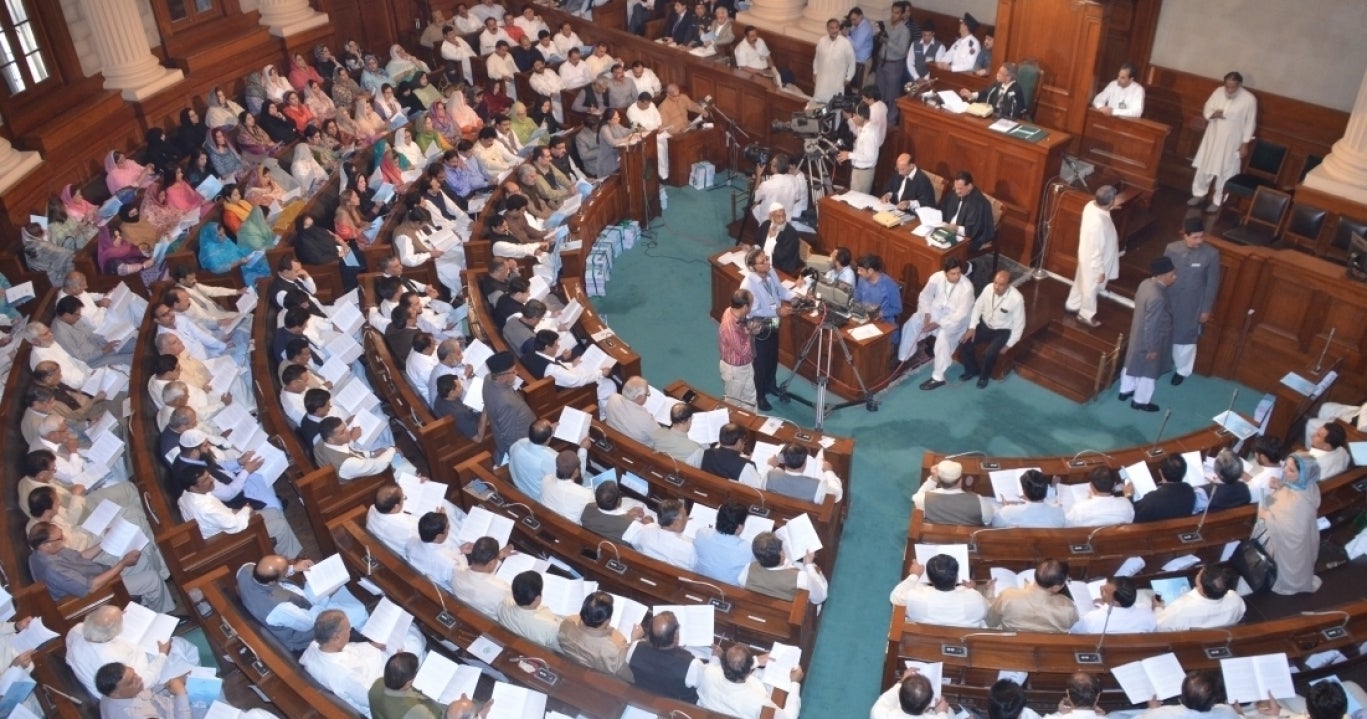
| Title: | Sectarianism and Censorship in Pakistan: The Punjab Tahaffuz‐e‐Bunyad-e‐Islam Bill 2020 |
| Author/s: | Imran Ahmed |
| Abstract: | Should states police the boundaries of theological toleration? What happens when they do? The passing of the Tahaffuz‐e‐Bunyad-e-Islam (Protection of the Foundation of Islam) Bill 2020 in Pakistan’s Punjab Assembly in July 2020 illustrates that laws, which seek to protect the religious sensitivities of one sect over another, politicises theological divisions, criminalises sectarian difference and marginalises religious minorities. It also raises long-‐ standing questions concerning the parameters of the state’s authority over religious affairs. The Bill emerges in a context of growing intolerance towards minorities and shares close textual similarities to Pakistan’s notorious blasphemy laws. |
| Date: | 9 October 2020 |
| Read More |
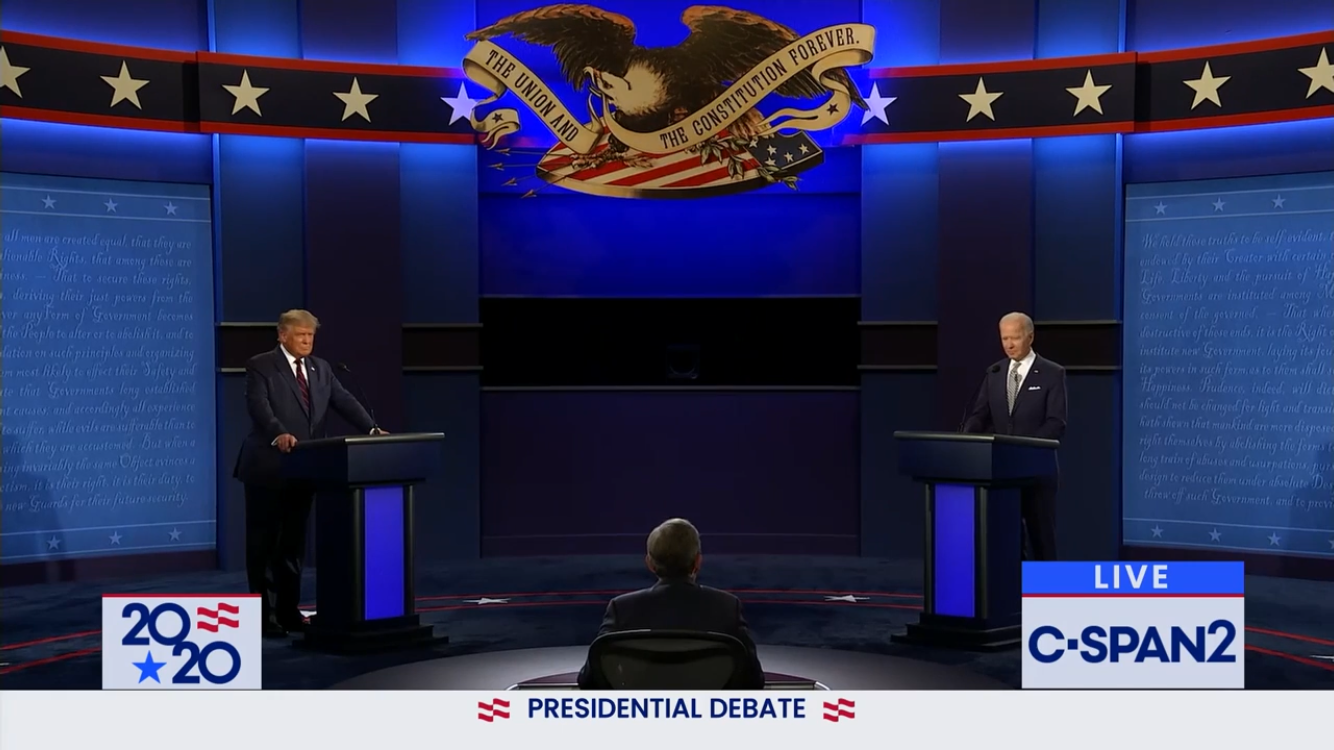
| Title: | South Asia and US Election 2020: The Shape of Things to Come |
| Author/s: | Monish Tourangbam |
| Abstract: | Every four years, when Americans vote to elect their president, policymakers and analysts across the world keenly watch and follow the presidential election campaign and its outcome. Given the overwhelming influence of the United States (US) on global politics and economics, the result of the presidential election this November will have wide-‐ranging implications across all regions and countries in the world. This paper assesses the impact of the 2020 US presidential election on South Asia. As the election campaign picks up heat in the coming days, the re-‐election campaign of President Donald Trump will highlight his achievements over the last four years and emphasise how ‘four more years of Trump’ will put ‘America First’. The presidential campaign of Joe Biden will attempt to show how the Trump presidency has negatively affected the domestic milieu and global image of the US and why American voters need to vote for a change of guard at the White House. In the context of the trends and patterns of Trump’s South Asia policy, this paper also analyses the changes and continuities that are likely to be seen in the US policy towards South Asia depending on the outcome of the 2020 presidential election. |
| Date: | 7 October 2020 |
| Read More |
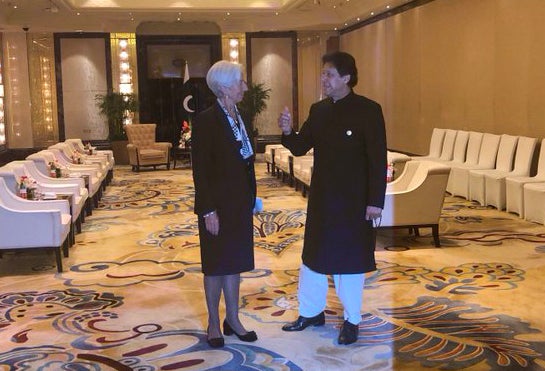
| Title: | Pakistan and the IMF: Debts, Deficits and Dependency |
| Author/s: | Nadia Dohadwala, Muhammad Bin Khalid, Karthik Nachiappan |
| Abstract: | For decades, Pakistan has depended on the International Monetary Fund (IMF) to fill economic gaps as crises erupt. What binds both entities? Will this persistent dependency continue post COVID-‐19 or will a self-‐reliant growth model emerge? This paper focuses on the last three packages (in 2008, 2013 and 2019) provided by the Fund to identify the continuities that compel the recent Pakistani governments to seek IMF assistance. |
| Date: | 30 September 2020 |
| Read More |
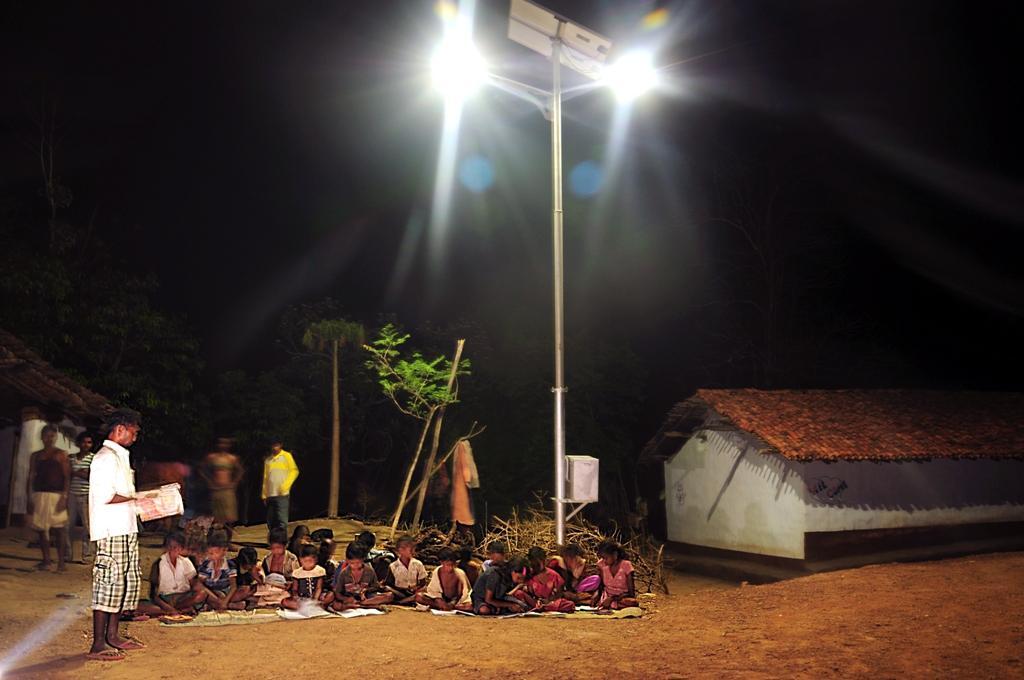
| Title: | The BBIN Initiative Power Corridor: Opportunity to Revive Regional Integration |
| Author/s: | Mohammad Masudur Rahman |
| Abstract: | The outbreak of COVID-19 has changed the global landscape. As a result, the socio-economic dynamics of contemporary South Asia are also changing rapidly. Among others, the lack of access to power will hamper the fight against the COVID-19 pandemic. Without electricity, technologies that connect us while allowing us to maintain social and safe distancing will become obsolete. Regional integration via power trade will bring significant benefits to the region. The Bangladesh, Bhutan, India, Nepal Initiative is already deeply connected through transmission links. It is now time for India, a trading power, to allow its neighbours to use its transmission links for cross-border electricity supply and, in the process, facilitate power to the powerless. |
| Date: | 17 September 2020 |
| Read More |
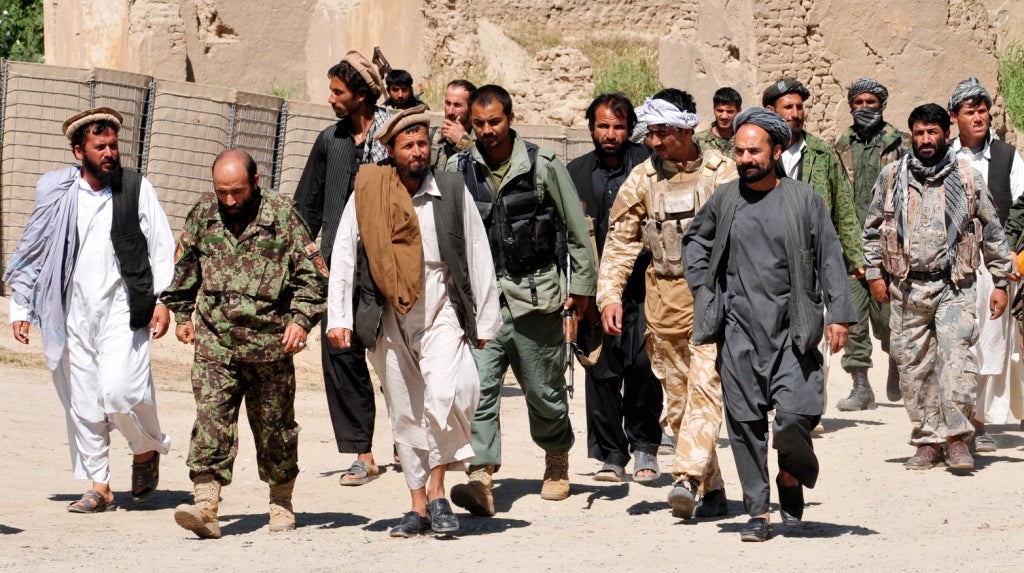
| Title: | The Taliban and External Power Politics in Afghanistan |
| Author/s: | Zahid Shahab Ahmed, Abbas Farasoo, Shahram Akbarzadeh |
| Abstract: | Following the September 11 terrorist attacks on the United States (US) in 2001, Washington approached the United Nations Security Council and its allies to remove the Taliban government in Afghanistan. The US-led North Atlantic Treaty Organization engagement has continued for nearly 20 years, but without a clear victory over the Taliban. The war has already been the longest-ever military engagement of the US involving heavy human and economic cost. Consequently, in 2011, the Barack Obama administration decided to withdraw troops from Afghanistan, and the subsequent Donald Trump administration has intensified efforts through a peace deal with the Taliban and intra-Afghan settlement. Within this context, this paper analyses the Taliban’s engagement with the US and other regional actors. The aim is to show how the Taliban’s external relations can influence the peace settlement in Afghanistan. |
| Date: | 16 September 2020 |
| Read More |

| Title: | The 18th Amendment: Historical Developments and Debates in Pakistan |
| Author/s: | Imran Ahmed |
| Abstract: | The aftermath of former President Pervez Musharraf’s political demise posed fundamental questions for legislators concerning the foundational values and the constitutional shape of the Pakistani state. The drafters of the 18th Amendment prioritised reforms which would improve transparency in the political system, minimise individual discretion, strengthen parliament and provincial assemblies, increase provincial autonomy, ensure the independence of the judiciary, expand fundamental rights and promote good governance. The 18th Amendment altered about a third of Pakistan’s Constitution. The reforms were not only legally important, but also symbolically significant. However, the drastic constitutional overhaul continues to prove controversial. The most enduring contention concerning the Amendment has been on the issue of devolution. |
| Date: | 4 September 2020 |
| Read More |
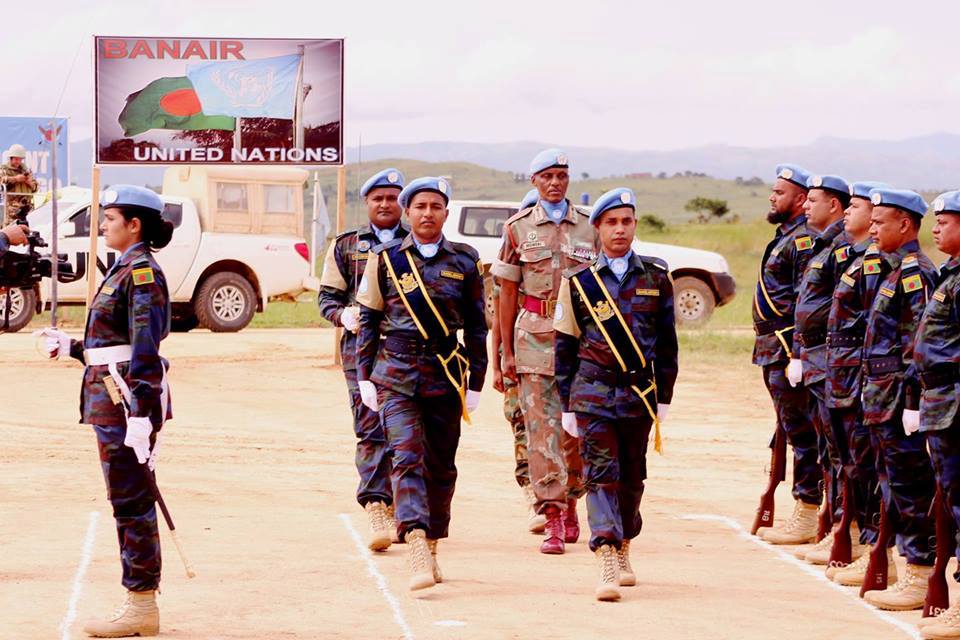
| Title: | Bangladesh a Regular Feature in UN Peacekeeping |
| Author/s: | Md Mustafizur Rahman |
| Abstract: | Bangladesh’s participation in United Nations (UN) peacekeeping missions has undoubtedly boosted the country’s reputation and international image. Apart from economic and professional benefits, it benefits politically and diplomatically as well. For the UN, Bangladeshi peacekeepers’ professionalism, commitment, impartiality, integrity and humane attitude make them dependable contributing partners. |
| Date: | 21 August 2020 |
| Read More |
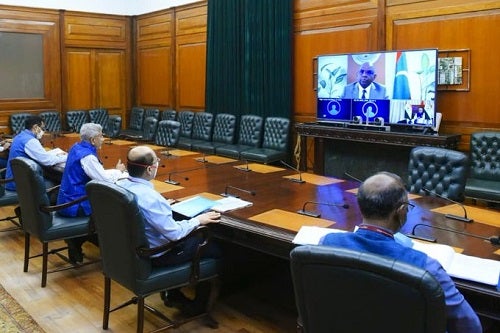
| Title: | Financing the Connectivity Project: A New Milestone in India-‐Maldives Relations |
| Author/s: | Amit Ranjan |
| Abstract: | India’s decision to finance the Greater Male Connectivity Project will be a new milestone in its relationship with the Maldives. New Delhi has also extended financial and renewed quotas for the supply of essential goods which will help the island state overcome the serious economic challenges posed by the COVID-19 pandemic. |
| Date: | 19 August 2020 |
| Read More |
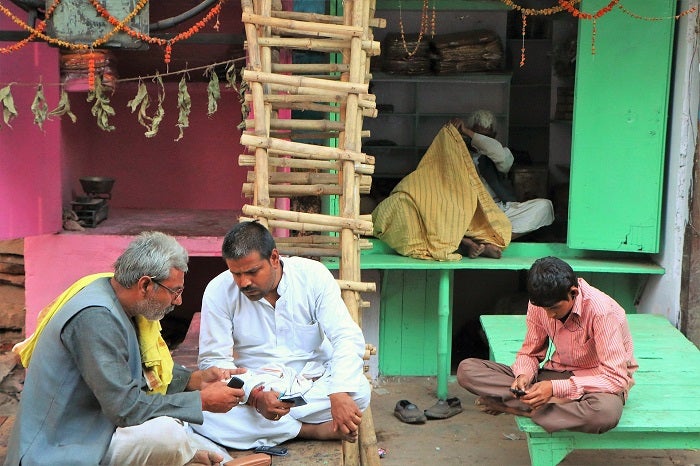
| Title: | Digital Accountability and Transparency Act: Towards Digitising the State |
| Author/s: | Vinod Rai |
| Abstract: | The form and manner of keeping accounts in the government have more or less remained unchanged in India since Independence. With the government mandating early transition to digital operations, the Comptroller and Auditor General has suggested the introduction of the Digital Accountability and Transparency Act (DATA) for a three-‐phased transition to mandatory digital payments, accounting and transactions for the central government. The introduction of DATA will ensure accuracy of accounting, transparency for citizens as well as easy and leakage-‐free delivery of beneficiary targetted schemes. It is hoped that the central government will introduce the Act early. |
| Date: | 18 August 2020 |
| Read More |
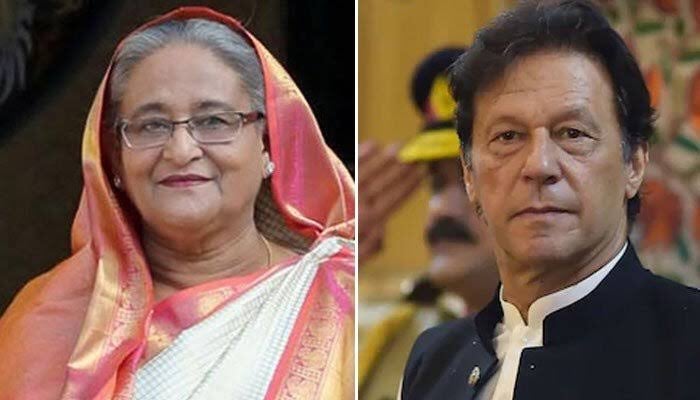
| Title: | Bangladesh-Pakistan Relations: A Palpable Thaw |
| Author/s: | Iftekhar Ahmed Chowdhury |
| Abstract: | For nearly a decade, Bangladesh-‐Pakistan relations have been icy. Now a palpable thaw appears to be in the offing. This paper seeks to explain why. It argues that the current sovereign nations of Bangladesh, India and Pakistan – the ‘core’ of the former British India – constitute a subsystem of their own within the subordinate state system of South Asia. Bilateral relations between any two of them cannot be properly understood without a reference to the third, with all three reacting to the foreign and domestic policies of one another. |
| Date: | 15 August 2020 |
| Read More |
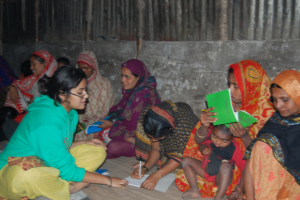
| Title: | The Empowerment of Women in Bangladesh: Not Just Rhetoric |
| Author/s: | Md Mustafizur Rahman |
| Abstract: | Successive governments in Bangladesh have formulated gender-sensitive policies and programmes to empower the women in the country. While these have yielded positive results, the country cannot rest on its laurels, as empowerment is a process as much as a goal. |
| Date: | 12 August 2020 |
| Read More |

| Title: | The Sree Padmanabhaswamy Temple Case: Landmark Ruling by the Indian Supreme Court |
| Author/s: | Vinod Rai |
| Abstract: | In a landmark judgement on 13 July 2020, the Indian Supreme Court overturned the Kerala High Court verdict which had ordered that the present ‘Maharaja’ could not automatically step into the shoes of the last ruler and, therefore, could not claim management rights over Sree Padmanabhaswamy Temple. In its verdict, the Supreme Court recognised the Covenant signed in 1949 between the Travancore-Cochin state and the Union of India and permitted the present descendants of the then-ruling family to continue its involvement in the management of the temple. There is now debate on the likelihood of this verdict impacting other similarly taken-over temples and it being tested against Articles 25 and 26 of the Constitution. |
| Date: | 5 August 2020 |
| Read More |
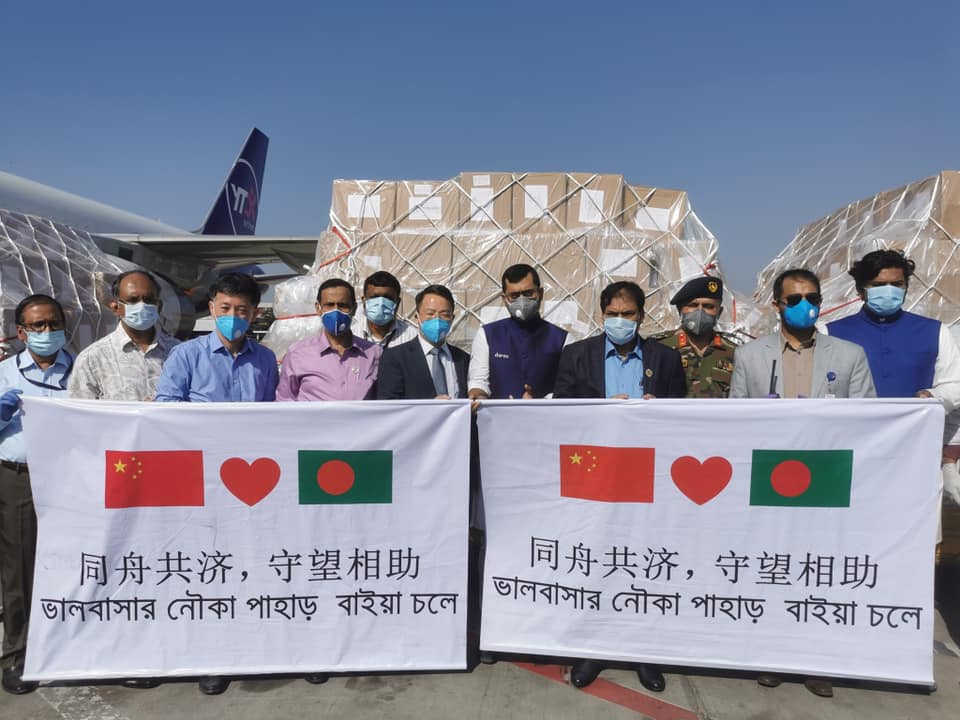
| Title: | Bangladesh the Much-Coveted Neighbour |
| Author/s: | Sreeradha Datta |
| Abstract: | Bangladesh’s growth trajectory, along with its geographic location, makes it an extremely attractive neighbour. As one of the leaders in the global textile industry, it has chartered a distinct path for itself and has become a favoured destination for foreign investment. Many states in the region are vying for its attention and are keen to strengthen their bilateral ties with Dhaka. The cross-border transport systems that Bangladesh is developing with India will enable it to play a significant role in regional trade and commerce. Economic reasons apart, political and strategic considerations have led to India and China forming close partnership with Bangladesh. Nepal and Bhutan, the smaller states in South Asia, are also reaching out to Bangladesh. In recent times, Pakistan has also made some overtures. Indeed, Bangladesh is emerging as a key partner in the Asian neighbourhood. |
| Date: | 4 August 2020 |
| Read More |
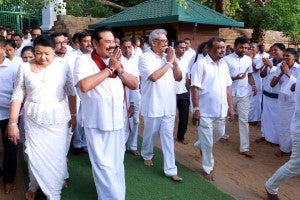
| Title: | Forthcoming Parliamentary Elections in Sri Lanka: Initial Observations |
| Author/s: | Chulanee Attanayake and Roshni Kapur |
| Abstract: | Sri Lanka is all set for its parliamentary polls on 5 August 2020. The political configurations that were formed during the presidential election in late 2019 have remained largely intact. As Sri Lankans prepare to exercise their democratic rights amidst a health crisis, this paper explores the configurations and trends, as well as the key themes in the elections. |
| Date: | 3 August 2020 |
| Read More |

| Title: | ‘Google Tax’: Implications for India |
| Author/s: | Amitendu Palit |
| Abstract: | India, along with several other countries, has imposed digital service taxes on online advertisement revenues and other digital sales by non-resident e-commerce firms. Popularly christened the ‘Google Tax’, these taxes have provoked United States (US) authorities to launch investigations on many imposing countries for determining whether or not these are particularly discriminatory to US technology firms, which are the largest online service providers in India and much of the rest of the world. This paper reviews the global trends in digital service taxes, including efforts to arrive at solutions for fixing multilateral principles for administering these taxes, which are extra-territorial, and unlinked from the traditional principle of physical presence for taxing foreign firms. For India, which has expanded the scope of the tax from 1 April 2020, the issue has emerged as a problem in proceeding on a limited trade deal with the US. |
| Date: | 31 July 2020 |
| Read More |
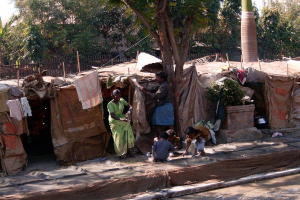
| Title: | Pandemic of Poverty in COVID-19 Stricken South Asia |
| Author/s: | Muhammad Bin Khalid and Diego Maiorano |
| Abstract: | While the whole world grapples with COVID-19 and its effects, the South Asian region is at a particularly high risk of pandemic-induced poverty. The World Bank and the International Monetary Fund predict that South Asia will be the worst hit region, with India being the most-affected country globally for COVID-19 induced poverty. This paper discusses the progress in poverty elimination made by the three major countries in the subcontinent – India, Pakistan and Bangladesh – over the past three decades and how COVID-19 is likely to affect the poverty situation in the region. |
| Date: | 28 July 2020 |
| Read More |
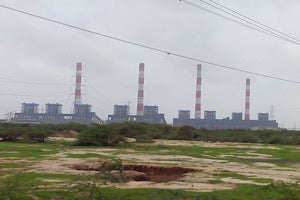
| Title: | Current Land Issues in India: Puzzles and Possible Solutions |
| Author/s: | Subhomoy Bhattacharjee |
| Abstract: | The importance of improving land laws in India has gathered traction in the aftermath of the COVID-19 pandemic as a necessity to enhance India’s attractiveness to global manufacturers and businesses. Among Indian states, Karnataka has amended its laws allowing industry to buy land directly from farmers. No other state, though, has so far acted decisively on land laws, which is somewhat surprising, given that many states are trying to amend labour laws. |
| Date: | 22 July 2020 |
| Read More |
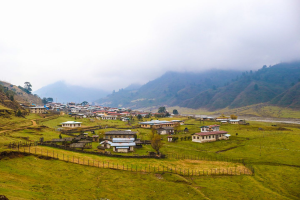
| Title: | China’s New Claim in Eastern Bhutan: Pressure Tactic or Message to India? |
| Author/s: | Amit Ranjan |
| Abstract: | China’s territorial claim over Sakteng Wildlife Sanctuary has surprised Bhutan, as it has never been a part of the Bhutan-China boundary talks. This development will further complicate Bhutan-China boundary talks. |
| Date: | 20 July 2020 |
| Read More |
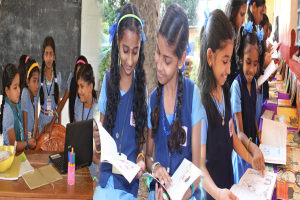
| Title: | Women Empowerment in India: More needs to be done |
| Author/s: | Roshni Kapur and S Narayan |
| Abstract: | As India progresses economically, there are calls for the country to pay more attention to social and human development, including women empowerment. This paper defines women empowerment as efforts that include “advocating for women’s and girl’s human rights, combating discriminatory practices and challenging the roles and stereotypes that create inequalities and exclusion”. Women empowerment is a critical aspect to achieving gender equality, where both men and women have equal power and opportunities for education, healthcare, economic participation and personal development. |
| Date: | 15 July 2020 |
| Read More |

| Title: | India’s Critical Medical Imports and the China Dependency |
| Author/s: | Amitendu Palit and Joshua Quek Hian Khun |
| Abstract: | The context of COVID-19 has produced two significant, occasionally overlapping anxieties about imports in India. The first of these is the concern over the high dependence on the rest of the world for products essential for tackling the pandemic. The second, and probably a deeper worry, is relying excessively on China, a country with which India’s geopolitical discomfort is currently at a record high, following the recent military standoff in the Himalayas. How valid are these concerns, particularly with respect to items that are most essential for mitigating public health exigencies like COVID-19? |
| Date: | 15 July 2020 |
| Read More |

| Title: | Will Nepali Remittance Bounce Back? |
| Author/s: | Sujeev Shakya |
| Abstract: | The return of migrant workers due to the COVID-19 pandemic has impacted remittances to Nepal leading to lower consumption. However, given the history of Nepali migration, this trend is expected to be short-lived. Once countries start opening up, the demand for Nepali workers is expected to pick up resulting in the return of remittances. |
| Date: | 8 July 2020 |
| Read More |

| Title: | Atmanirbhar Bharat: A Political Initiative |
| Author/s: | S Narayan |
| Abstract: | The Indian government’s recent call for a self-reliant India, urging industries to replace imports with locally manufactured goods, has gained credence, especially with the ongoing border conflict with China. If well-planned and backed with necessary reforms, this could create greater job opportunities as well as benefit small industries and agriculture. |
| Date: | 30 June 2020 |
| Read More |
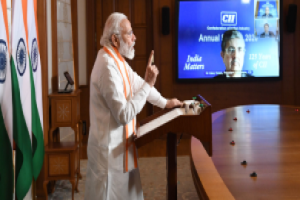
| Title: | Modi, the RSS and a Self-Reliant India |
| Author/s: | Ronojoy Sen, John Joseph Vater |
| Abstract: | On 12 May 2020, Indian Prime Minister Narendra Modi announced a substantial economic package to resuscitate India’s struggling economy. Besides the money that was committed to reviving the economy hit hard by the pandemic, Modi also launched the ‘Atmanirbhar Bharat Abhiyan’ (Self-Reliant India campaign). While some fear Modi’s vision signals a shift towards protectionism, the Rashtriya Swayamsevak Sangh (RSS) has welcomed the move as the focus on local industry and indigenous modes of production resonates with its ideology of ‘swadeshi’. This emphasis on ‘self-reliance’ could accelerate amidst the deepening hostilities with China. This paper looks at the extent to which Modi’s vision is in consonance with the RSS’ thinking. |
| Date: | 24 June 2020 |
| Read More |

| Title: | Economic Impact of a Pandemic: Pakistan Grapples with COVID-19 |
| Author/s: | Muhammad Bin Khalid and Iqbal Singh Sevea |
| Abstract: | Pakistan has the highest number of COVID-19 cases per capita in South Asia. As it confronts a health crisis, the country also finds itself grappling with the impact of the pandemic on its gross domestic product, export sector and current account deficit. The pandemic has already resulted in the first annual contraction of Pakistan’s economy in 68 years and is threatening to exacerbate its economic vulnerabilities. This paper assesses the impact of the pandemic on Pakistan’s economy and examines the steps taken by the federal and provincial governments to mitigate this. It also critically analyses how the pandemic has and will impact its ability to raise revenue and balance its fiscal deficit. |
| Date: | 19 June 2020 |
| Read More |

| Title: | Impact of COVID-19 on Nepal’s Economy |
| Author/s: | Keshav Bashyal and Amit Ranjan |
| Abstract: | Due to the COVID-19 pandemic, Nepal’s economy is facing a slowdown. Various countries and international institutions have come forward to help the country in its revival. The Nepal government has also announced a slew of measures. The efficacies of these efforts have to be observed. |
| Date: | 18 June 2020 |
| Read More |
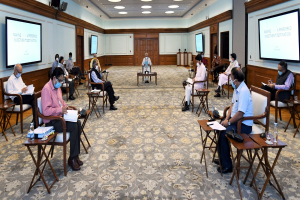
| Title: | Attracting Foreign Investment into India: Key Initiatives by the Government |
| Author/s: | Vinod Rai |
| Abstract: | As a possible fall out of the COVID-19 pandemic crisis, India has the opportunity to attract foreign direct investment inflows from large companies seeking to diversify their investment to mitigate risks. It has set up an empowered group of secretaries to engage in conversation with these companies and provide all possible facilities to them to ensure ease of setting up business. In addition, some incentive schemes have been announced in sectors where the government feels India has an advantage such as mobiles, electronics and medical equipment. However, mere incentives may not be sufficient to attract these investors. It will require a whole ecosystem which is facilitative and not overbearing. |
| Date: | 11 June 2020 |
| Read More |
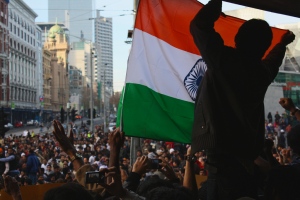
| Title: | Pillar of Changed Relationship? Australia’s New Indian Diaspora |
| Author/s: | Robin Jeffrey |
| Abstract: | The Indian diaspora in Australia has expanded rapidly in the last 20 years to 750,000 people today. This has been possible due to India’s own economic reforms in the 1990s and Australia becoming an attractive education destination to Indians. While, in the past, these two countries did not share a flourishing bilateral relationship, the time now seems ripe to build strong links between them. |
| Date: | 5 June 2020 |
| Read More |
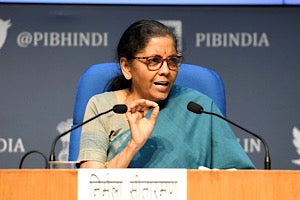
| Title: | Economic Stimulus Package: Can India Reboot the Reform and Revival Process? |
| Author/s: | S Narayan |
| Abstract: | India’s Finance Minister Nirmala Sitharaman has announced a spate of reforms covering a wide spectrum of the Indian economy. These include agriculture, finance and domestic industry. While many of these reforms have been long pending and are viewed as short- and medium-term strategies, implementation will be key to their success. |
| Date: | 22 May 2020 |
| Read More |
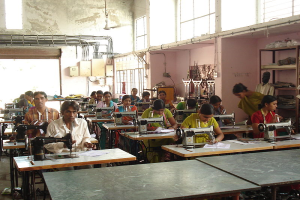
| Title: | Indian Government’s Stimulus Package: Opportunity for Widespread Reforms |
| Author/s: | Vinod Rai |
| Abstract: | The Indian government has attempted to use the pandemic-created crisis in the economy to introduce much-needed reforms in many sectors. Attached to the recently announced stimulus package are many relaxations and amendments to archaic and outdated provisions in laws pertaining to land, agriculture, labour and micro and small Industries. These reforms appear poised to enable the economic recovery to be sustainable over the long-term. |
| Date: | 15 May 2020 |
| Read More |
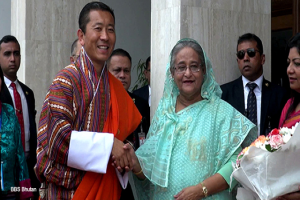
| Title: | Bangladesh and Bhutan: Fostering Win-Win Bilateral Relations |
| Author/s: | Mohammad Tarikul Islam |
| Abstract: | Bangladesh and Bhutan are regional neighbours with strong and long-standing bilateral relations. In recent years, the two countries have committed themselves to a strategic development partnership, encompassing hydropower, free trade and transport. Neighbours by geography, the foundation of the two countries’ age-old friendship was laid down by leaders with the common aspirations of peace, mutual respect, collective prosperity and deeper integration. Both countries have walked a similar path of socio-economic progress and are on track towards least developed countries graduation within the next decade. |
| Date: | 15 May 2020 |
| Read More |

| Title: | COVID-19: Economic Impact and Challenges for the Maldives |
| Author/s: | Amit Ranjan |
| Abstract: | A decline in the number of tourists to the Maldives due to COVID-19 will severely affect the country’s tourism sector. This will also have a negative spill-over on the other sectors of the economy, as most of them are linked to tourism. Many people have already lost their jobs and it is expected that these numbers will only increase. To reduce the economic damage, the Maldives’ government announced specific measures to address COVID-19-related damages and challenges, the efficacies of which have to be observed. |
| Date: | 4 May 2020 |
| Read More |
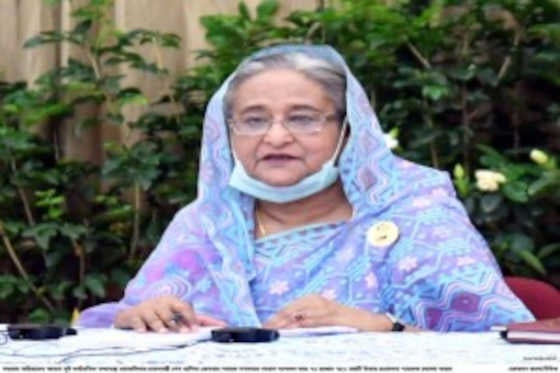
| Title: | Combating COVID-19 in Rural Bangladesh: The Role of the Local Government |
| Author/s: | Mohammad Tarikul Islam |
| Abstract: | As one of the most densely populated countries in the world, Bangladesh is severely vulnerable to the COVID-19 pandemic. In the rural areas of Bangladesh, health security is a great challenge and it has now been further intensified under the present circumstances. Despite the government announcing several packages to help the poor, implementation has not been effective due to the lack of coordination in the local administration. This is further stymied by undue influence of local government officials, nepotism and corruption, resulting in misappropriation of relief funds for the poor rural dwellers. The government has shown zero tolerance towards the accused masterminds under Section 34 (1) of the Local Government (Union Parishad) Act 2009. However, this pandemic requires proper disaster management planning through the integration of the various activities at the local and national levels. |
| Date: | 21 April 2020 |
| Read More |
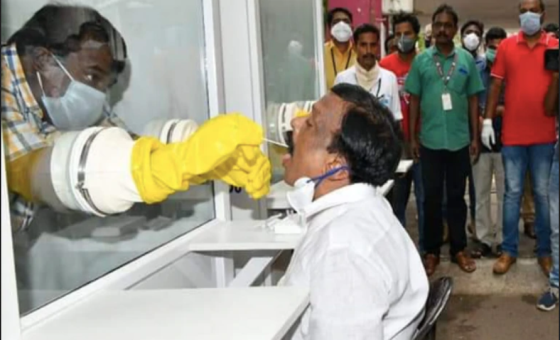
| Title: | The Kerala Model to battle COVID-19 |
| Author/s: | Vinod Rai |
| Abstract: | The early recognition and prompt planning to face the COVID-19 pandemic by the Kerala government has benefitted the state and country immensely. The state modelled its entire COVID-19 strategy on the deep roots of decentralised local self-administration and inherent strength of the public healthcare system. The state adopted an aggressive strategy of locating, testing, tracking and containment, which has paid rich dividends. It sees the curve flatten, as India moves out of the four weeks of the national lockdown. Kerala is now poised for phased relaxation of the lockdown from 20 April 2020. |
| Date: | 20 April 2020 |
| Read More |

| Title: | COVID-19 and Indian States: Spread, Risk and Implications |
| Author/s: | Amitendu Palit |
| Abstract: | India’s three-week stringent countrywide lockdown to curb the spread of COVID-19, introduced from 25 March 2020, has been extended till 3 May 2020. The extension indicates the government’s efforts to manage the outbreak as its topmost priority. This paper studies the spread of COVID-19 within the Indian federation and looks closely at the situation across the country’s regions and states. It divides the states according to the degree of spread and nature of risk, and identifies Maharashtra, Delhi and Madhya Pradesh as the three most affected and risk-prone states right now. There are a number of other states from India’s North, West and South, which might either suffer or escape the spread and impact of COVID-19, depending upon their abilities to control it. The performances of these states, populous and significant in the national economy, would determine the scale of COVID-19’s impact on human lives and the economy of India. The paper also cautions low-spread states in India’s East and Northeast to avoid complacency in fighting COVID-19 and contribute actively to resumption of economic activities. |
| Date: | 18 April 2020 |
| Read More |
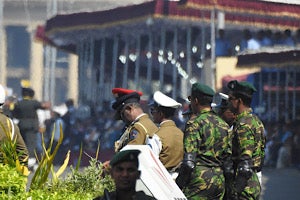
| Title: | New Dilemmas for Sri Lanka: Federalism and Post-war Reconciliation |
| Author/s: | Roshni Kapur and Amit Ranjan |
| Date: | 16 April 2020 |
| Read More |
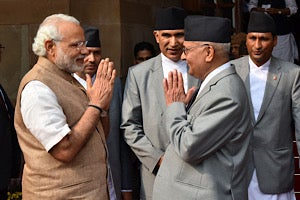
| Title: | Indo-Nepal Dynamics vis-à-vis China |
| Author/s: | Wini Fred Gurung and Yogesh Joshi |
| Abstract: | The increasing Sino-Nepal ties accompanied by domestic and historical factors have affected the age-old Indo-Nepal relationship. With India’s position already weakened in South Asia, losing Nepal to China will be a massive setback for its ‘neighbourhood first’ policy. |
| Date: | 14 April 2020 |
| Read More |

| Title: | Public Health Governance to Battle COVID-19 in India |
| Author/s: | Vinod Rai |
| Abstract: | The COVID-19 pandemic has wreaked havoc among the poor and those working in the unorganised sector in India. The surge of infections has also led to panic across the nation. The states appeared to have been inadequately prepared for the mass migration on the announcement. However, after the initial two or three days, the public health administration at the district level has rallied with alacrity. The coordination among the various state-level bodies has been remarkable. The policy of social distancing and containment seems to have checked community spread. However, it is still early for the government to relax the curbs. |
| Date: | 13 April 2020 |
| Read More |

| Title: | The Long Walk Home: COVID-19 Lockdown and Migrant Labour in India |
| Author/s: | Dipinder S Randhawa |
| Abstract: | The announcement of a nationwide lockdown in India to combat the spread of COVID-19 saw millions of migrants rush back to their villages. In doing so, they placed themselves and their families at risk. Why did they do so? Did policymakers have choices? |
| Date: | 9 April 2020 |
| Read More |

| Title: | Pakistan’s FATF Woes: A Tough Gauntlet to Run? |
| Author/s: | Iftekhar Ahmed Chowdhury |
| Abstract: | The Financial Action Task Force is mandated to ensure that countries comply and implement its recommendations on money-laundering and terrorist financing. Pakistan is on its ‘grey list’, and to avoid a downgrade to its ‘black list’, the country must satisfy certain conditions by June 2020. A failure on the part of Islamabad will greatly exacerbate its economic hardship in the future. |
| Date: | 8 April 2020 |
| Read More |
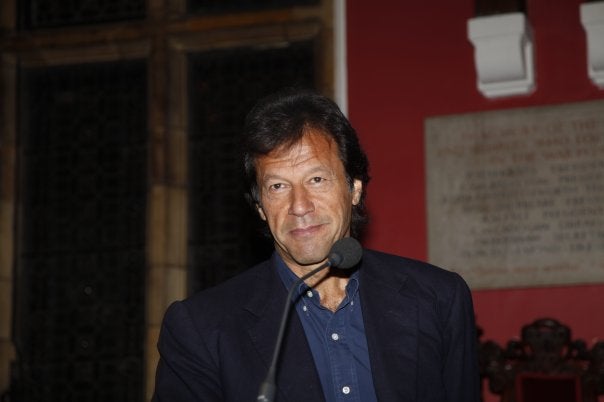
| Title: | Rekindling Pakistan’s Southeast Asia Engagement under Imran Khan |
| Author/s: | Mustafa Izzuddin and Sidra Tariq Jamil |
| Abstract: | As Prime Minister of Pakistan Imran Khan seeks to break new ground in Pakistan’s foreign policy, it is time for his government to give Southeast Asia a closer look. Through both bilateral and multilateral engagements by way of the Association of Southeast Asian Nations (ASEAN), Pakistan stands to benefit on several principal fronts: symbolically, strategically, economically, geopolitically and on matters of defence and security. If Khan’s Pakistan stays the course, and charts its own path by devising a unique blueprint to engage Southeast Asia, it is only a matter of time before Pakistan achieves its aspiration of becoming a full dialogue partner of ASEAN. The journey towards reaching this goal can rake in benefits for Pakistan, which could then further endear the Khan government to the country’s domestic population. |
| Date: | 30 March 2020 |
| Read More |
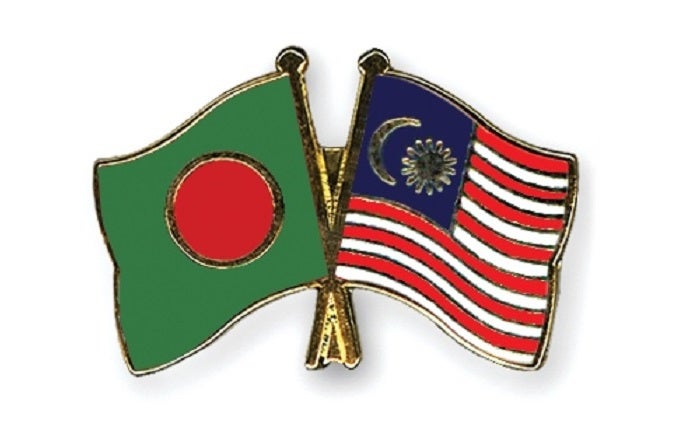
| Title: | Rebooting Bangladesh-Malaysia Relations |
| Author/s: | Mustafa Izzuddin |
| Abstract: | Of all the leaders presiding over the eight countries in the South Asian region, it was surprisingly the Prime Minister of Bangladesh Sheikh Hasina who was the first among them to congratulate Muhyiddin Yassin on his swearing in as the eighth Prime Minister of Malaysia. In her letter, Hasina called on Malaysia under the Muhyiddin government to “work together” with Bangladesh and “take full advantage of the complementaries in our relations”. The rebooting of Bangladesh-Malaysia relations is on the cards with the hope of making this relationship more significant in each other’s foreign policy in this decade through the following several core elements: strategic confluence, the economic imperative, the humanitarian angle with the Rohingyas and the prospects for maritime engagement and defence cooperation. |
| Date: | 23 March 2020 |
| Read More |
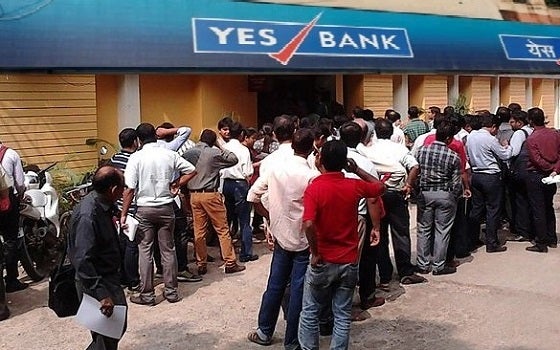
| Title: | Lessons from the Yes Bank Saga in India |
| Author/s: | Vinod Rai |
| Abstract: | One more bank in India has gone belly up. The reform package rolled out by the Reserve Bank of India/government has been appreciated. It has been fairly swift and well structured. The action notwithstanding, the entire episode raises issues of failures in good governance, audit, board and regulator supervision and the cosy nexus between the promoter and those agencies mandated to ensure probity and transparency in the dealings of the bank. The time is ripe to introduce a stringent package of reforms that should ensure deep-rooted correctives in bank administration, supervision and audit. |
| Date: | 21 March 2020 |
| Read More |

| Title: | India’s Groundwater Woes |
| Author/s: | Amit Ranjan |
| Abstract: | The decline in the groundwater table is a matter of serious concern for India. To protect, conserve, manage and properly govern the country’s groundwater, the Indian government has, since the 1970s, come out with a number of model bills. The individual states have their own legislations to protect and conserve their groundwater. However, due to unregulated extraction, poor management and inadequate recharge of groundwater, the problem is more acute than what one can see on the ground. |
| Date: | 16 March 2020 |
| Read More |
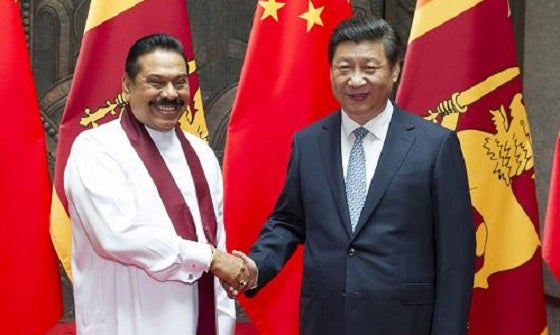
| Title: | Sri Lanka’s Equidistant Policy: Implications for China |
| Author/s: | Chulanee Attanayake and Archana Atmakuri |
| Abstract: | Soon after his election as Sri Lanka’s President, Gotabaya Rajapaksa’s statement about an equidistant foreign policy, and Sri Lanka remaining neutral in the conflict amongst nations, received international attention. The objective of neutrality is ideal for the island nation, especially given the geopolitical interests several major countries seek to pursue through Sri Lanka. However, this policy’s practicality, especially concerning China, has been questioned, as Beijing had enjoyed a special relationship with Colombo during the Mahinda Rajapaksa government. Against this backdrop, this paper examines what an equidistant foreign policy means for Sri Lanka-China relations. |
| Date: | 12 March 2020 |
| Read More |
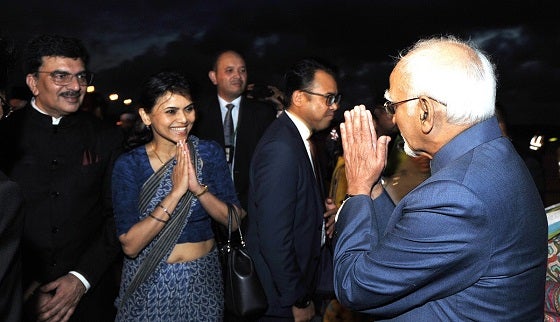
| Title: | Envisioning the Potential in India-Brunei Relations |
| Author/s: | Mustafa Izzuddin |
| Abstract: | In India’s eastward engagement with Southeast Asia under Prime Minister Narendra Modi’s ‘Act East’ policy, the energy-rich maritime country of Brunei Darussalam would be expected to feature prominently. Yet, during Modi’s first term in office from 2014 to 2019, India neglected Brunei. Modi has not visited Brunei, despite visiting several Association of Southeast Asian Nations (ASEAN)-member countries, either in a bilateral meet-up or a multilateral summit. Meanwhile, the Sultan of Brunei, Hassanal Bolkiah, has visited India only once to celebrate 25 years of ASEAN-India dialogue relations. India should redress this benign neglect in its relations with Brunei so as to envision the potential in their relations on several fronts: maritime engagement, defence cooperation, economic diplomacy, people-to-people linkages and strategic convergence. India and Brunei should make their bilateral ties more significant in each other’s foreign policy. |
| Date: | 4 March 2020 |
| Read More |
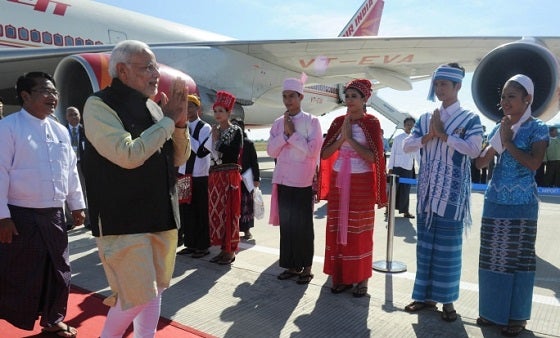
| Title: | India’s Myanmar Engagement under the Modi Government |
| Author/s: | Mustafa Izzuddin and Archana Atmakuri |
| Abstract: | Myanmar’s strategic importance to India has been underscored by the government of Indian Prime Minister Narendra Modi since 2014. Its attendance as one of two Southeast Asian countries at the swearing-in of Modi’s second term in 2019 further testifies to Myanmar’s importance to India. With China’s increasing footprint in Myanmar, India will need to redouble its efforts to strengthen its relations with Myanmar in the maritime, defence, security and economic domains while also addressing their outstanding bilateral concerns. Against this backdrop, the case made here is that India matters to Myanmar, and engagement will likely intensify in the coming decade. |
| Date: | 2 March 2020 |
| Read More |

| Title: | Not a Happy Place: Bhutan Faces Serious Socio-economic Problems |
| Author/s: | Amit Ranjan |
| Abstract: | Popularly known as the land of Gross National Happiness, Bhutan faces a number of socio-economic challenges. Poverty and youth unemployment remain high, the healthcare system is in disarray, the ecological landscape is under threat due to climate change and there are high incidences of violence against women. The government has put in place policies and schemes to address some of these challenges. However, most of these measures have not had the desired outcomes. |
| Date: | 1 March 2020 |
| Read More |
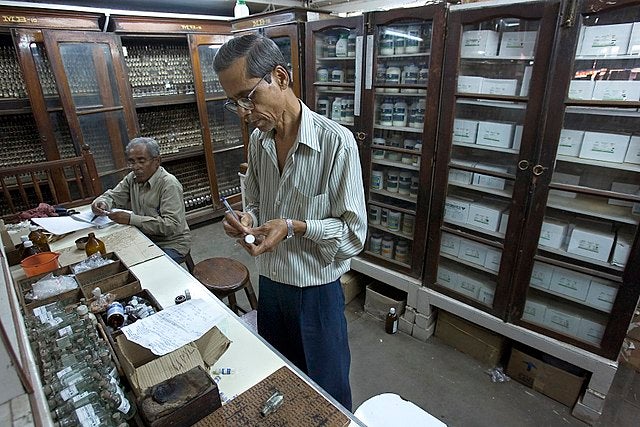
| Title: | The Novel Coronavirus Outbreak: Risks for India’s Pharmaceutical Industry |
| Author/s: | Amitendu Palit |
| Abstract: | The impact of the Novel Coronavirus has assumed enormous proportions with countries bracing themselves for substantive economic damage. Much of the damage arises from China’s prominent position in the global economy. As the world’s largest source of industrial raw materials and intermediates, imports from China are essential for the sustenance of several critical industries, such as semi-conductors, automobiles and pharmaceuticals. With China being the epicentre of the Coronavirus pandemic, many countries, including India, which have significant import dependence on China, are apprehending adverse impacts. One of India’s key concerns in this regard is the impact on its pharmaceutical industry. |
| Date: | 1 March 2020 |
| Read More |

| Title: | Whither India-Malaysia Relations? |
| Author/s: | Mustafa Izzuddin |
| Abstract: | The recent bilateral spat between India and Malaysia has brought into sharp focus whether India-Malaysia relations have begun to falter under the administrations of Malaysian Prime Minister Mahathir Mohamad and Indian Prime Minister Narendra Modi. While India-Malaysia relations will continue to wax and wane so long as Modi and Mahathir remain leaders of their countries, there is no imminent risk of diplomatic rupture. Modi and Mahathir should visit each other’s country to underscore the importance of India-Malaysia relations in the foreign policies of their respective countries. Both India and Malaysia should focus on what matters: economic engagement, military and defence cooperation and cultivating their diasporic connection. |
| Date: | 27 February 2020 |
| Read More |
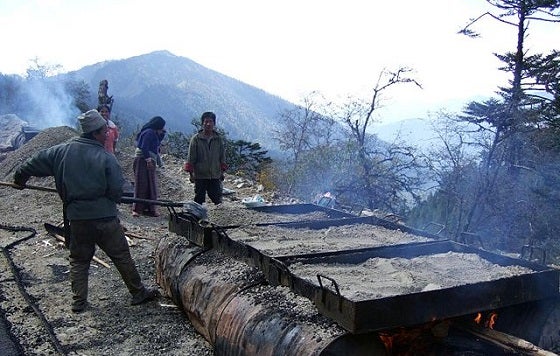
| Title: | Structural Transformation of Bhutan’s Economy: Challenges Remain |
| Author/s: | Amit Ranjan |
| Abstract: | In spite of its structural transformation, Bhutan’s economy is not performing well. While the tourism sector has seen growth, the other sectors are not performing up to expectations. The economy also continues to be highly dependent on the hydropower sector. Bhutan also remains highly dependent on India for market, trade, money and technology. |
| Date: | 17 February 2020 |
| Read More |
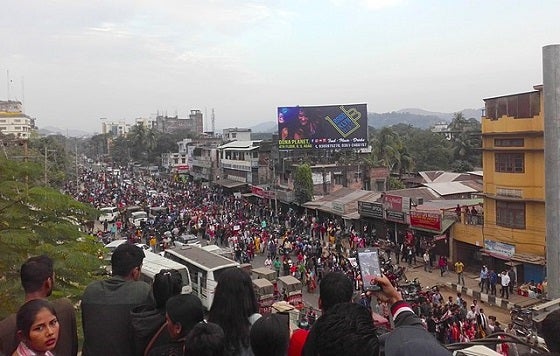
| Title: | The Deeper Implications of India’s Protests Against the Citizenship Act |
| Author/s: | Diego Maiorano |
| Abstract: | India has been engulfed with large-scale protests for over a month in the wake of the enactment of the Citizenship Amendment Act (CAA) in December 2019, which grants special privileges to non-Muslim refugees from Afghanistan, Pakistan and Bangladesh for the acquisition of Indian citizenship. While the protests will likely continue for a while, it is unlikely that the government will concede much. However, it is the longer-term impact of the protests, especially in terms of India’s international standing and federal relations, that should be a cause for concern. |
| Date: | 23 January 2020 |
| Read More |
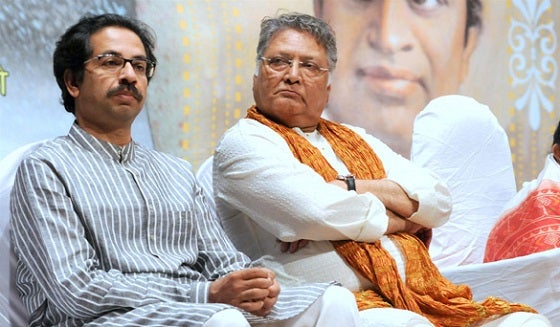
| Title: | The Climate Emergency Situation in Maharashtra: A Big Challenge for Uddhav Thackeray |
| Author/s: | Amit Ranjan |
| Abstract: | A key challenge facing the new Maharashtra government is the urgent need to deal with the “climate emergency” in the state. A number of studies and reports on the impact of climate change have shown that if appropriate steps are not taken now, Maharashtra could face serious economic consequences in the near future. |
| Date: | 22 January 2020 |
| Read More |

| Title: | A New Chief of Defence Staff Post in India: Ensuring Greater Security Coordination |
| Author/s: | Vinod Rai |
| Abstract: | The Indian government has formally announced the creation of the post of the Chief of Defence Staff (CDS). This appointment had been recommended by many committees, the most significant of which was the one after the Kargil operations against Pakistan. The CDS is expected to provide a single point of advice to the government on all tri-service matters and serve as the permanent chairman of the chiefs of staff committee. He will also head the Department of Military Affairs in the Ministry of Defence. The appointment is expected to provide synergy in the functioning of the three services and bring about better coordination in training and other capital acquisition plans. |
| Date: | 2 January 2020 |
| Read More |
Load more


